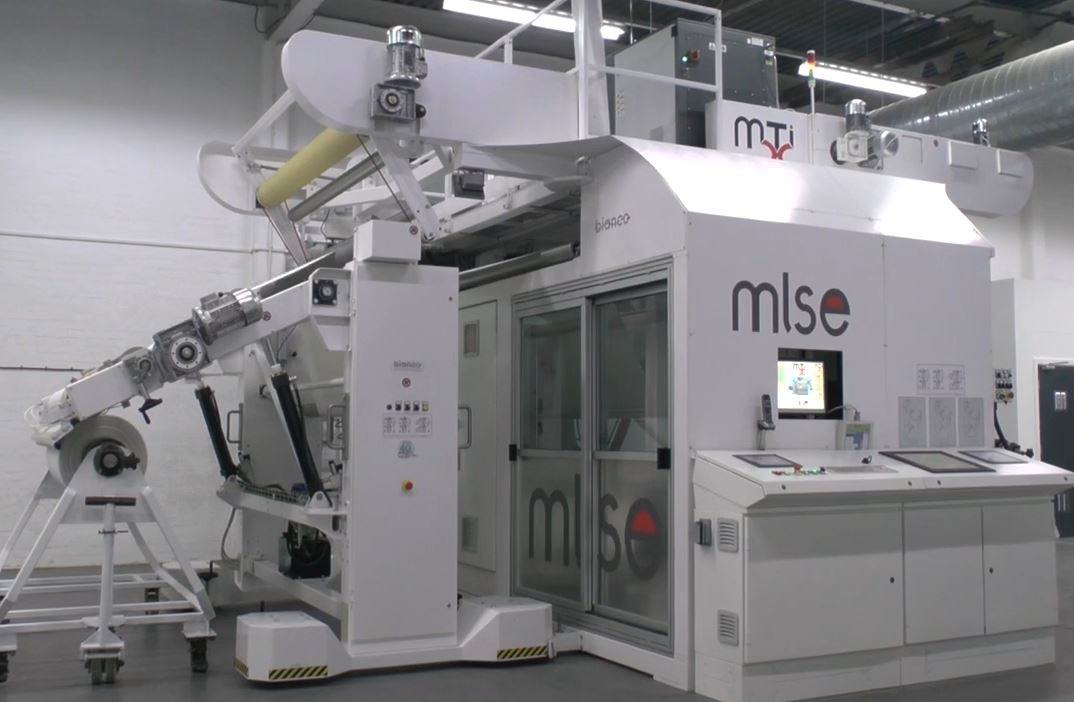MTIX teams up with Pangaia for cleaner processing
14/08/2024

Huddersfield-based MTIX presented its Multiplexed Laser Surface Enhancement (MLSE) platform, explaining the tie-up had resulted in garments that could be dyed from a grey fabric, rather than first bleaching to white, saving water, chemicals and energy.
The platform, which can be integrated into mills’ set-ups, works at both the preparation and finishing stage of textile production. At the front end, it can prepare materials for dyeing, digital scouring or treating them to reduce microfibre migration, among others. At the finishing stage, it can add performance coatings or processes to produce water repellency, antimicrobial resistance and fire retardancy, without using fluorocarbons.
MLSE is a virtually dry process, which also reduces energy usage, according to the company.
Bill Macbeth, managing director of the Textile Centre of Excellence in Huddersfield, said: “This technology could lead to companies being more cost effective in the way they produce materials, as they would use less energy, less water, fewer chemicals and produce less effluent. I think it’s the cleanest of greenest technology, as it removes all the environmentally dangerous elements of our industry. And to a certain extent it’s also portable. MLSE is a relative lightweight technology that can be implemented anywhere, as you don’t need access to lots of water and energy.”
One of MTIX’s focus areas is to reduce microfibre migration, an area it also worked on with Pangaia, and in 2022 shared a $525,000 prize pot with four other companies as part of Conservation X Labs’ Microfiber Innovation Challenge.
Graham Downhill, vice-president of MTIX, told sportstextiles: “Everybody is talking about microfibres but there currently isn’t a real solution. Other companies are focused on filtering out the microfibres after washing, but our process ‘sticks’ the loose fibres back onto the fabric, so it reduces the problem at source.”
Brand users of the technology include UK-based Private White VC, which was impressed by the performance of the fabrics treated by the system.
There are currently MLSE systems in Portugal and Amsterdam, with another being built in Italy. It can be used across various textiles sectors, including homeware, automotive and medical textiles.











